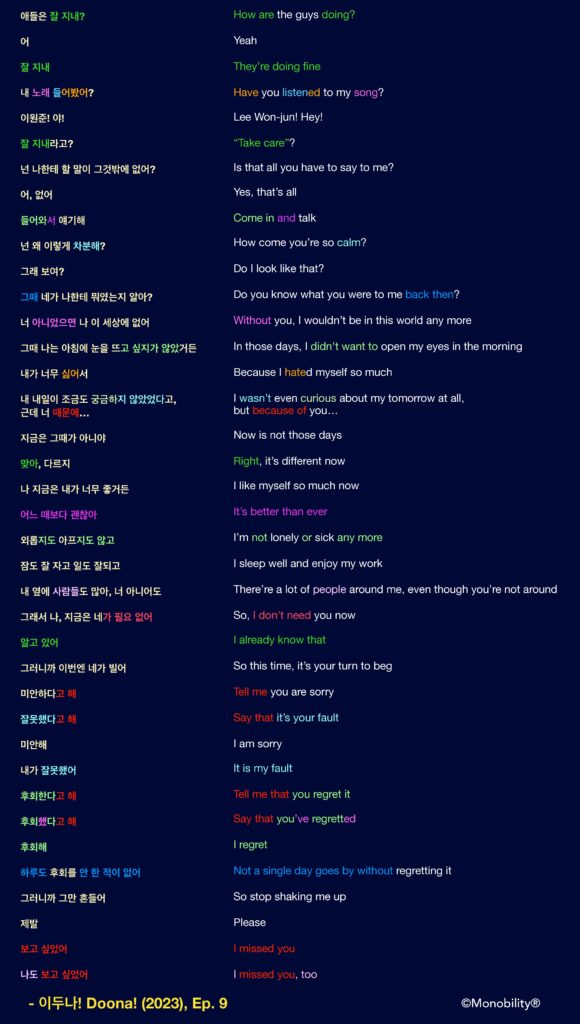“보고 싶었어요” literally means “I wished to see you (again)” [ 보다 to see; (verb stem) +고 싶다 wish to … ; -었다 past tense ]. This phrase is often translated as “I missed you” in English. But unlike “I missed you” which can have a romantic connotation for lovers, etc., Korean “보고 싶었어요” does not necessarily have the same romantic or even physical undertone. Koreans say 보고 싶었어요 to their teachers, bosses, colleagues, parents, children, or even friends of the same sex, after a certain period of absence, without particularly meaning anything romantic. So, when your Korean colleague at work tells you “I missed you” in English, don’t be startled or misunderstand. More often than not, he or she mistranslated 보고 싶었어요 into the more romantic “I missed you”, thinking simply that they are equivalent.


Join Monobility® Group for much more:



